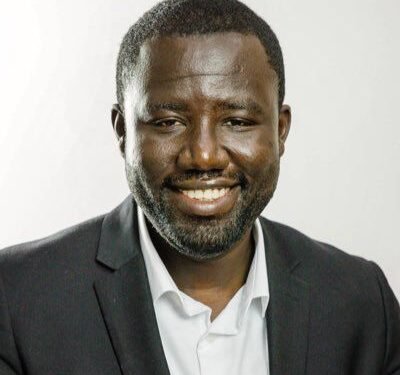In her latest Geopolitical Intelligence Service (GIS) report, Dr. Carole Nakhle, a renowned energy expert and CEO of Crystol Energy, delves into the complexities of Equatorial Guinea’s oil and gas sector.
Her analysis provided a comprehensive overview of the current state of the industry, highlighting the challenges it faces and proposing strategies for reversing the declining production trend. This report is particularly timely, given the global shift towards renewable energy sources and the increasing importance of sustainable practices in the energy sector.
Equatorial Guinea’s reliance on oil and gas, despite its modest reserves, has been a cornerstone of its economy, contributing significantly to its GDP and government revenues. However, the departure of ExxonMobil, coupled with the country’s declining oil and gas production, poses a critical threat to its economic stability.
The country’s proven oil reserves are relatively small, ranking it among the least endowed nations in terms of oil and gas resources. This situation is exacerbated by the global shift towards renewable energy sources and the increasing pressure to reduce carbon emissions, which marginalizes smaller producers like Equatorial Guinea.
“The decline of oil and gas production and the shrinking of an already small oil and gas reserves base spell serious trouble for an economy that is notably reliant on the proceeds of fossil fuels. To lead the oil-dependent country out of this crunch, the government of Equatorial Guinea would need to succeed simultaneously in a number of tough challenges.”
Dr. Carole Nakhle, Renowned Energy Expert and CEO of Crystol Energy
The report emphasized the need for Equatorial Guinea to undertake a multifaceted approach to mitigate these challenges. One of the primary challenges identified by Dr. Nakhle is attracting new investments to expand its oil sector.
Additionally, the report highlighted the need for negotiating agreements with neighboring countries for gas supplies and joint field development and implementing essential institutional reforms and economic diversification efforts. These measures are crucial for reducing the country’s vulnerability as the energy transition accelerates and for positioning itself as a viable partner in the global energy market.
Dr. Carole Nakhle noted, “Only this combined approach could help Equatorial Guinea reduce its vulnerability as the energy transition accelerates and marginalizes smaller oil and gas producers.”
Current State of Equatorial Guinea’s Oil and Gas Industry

Equatorial Guinea, a small West African nation, has long been a significant player in the global oil and gas market. However, recent years have seen a decline in production. Since Mobil Corporation’s discovery of the Zafiro oil field in 1995, which was subsequently developed by Exxon after its acquisition of Mobil in 1999, Equatorial Guinea has relied heavily on oil revenues, with the Zafiro field alone contributing to over half of the nation’s oil output at its peak.
However, ExxonMobil’s decision to exit the country reflects its strategic shift towards regions with higher growth potential, such as Guyana and the Permian Basin in the United States. This move underscores a perceived lack of lucrative opportunities in Equatorial Guinea’s oil sector, sending negative signals to potential investors.
The decline in oil and gas production, coupled with the exhaustion of existing reserves, poses a grave challenge to Equatorial Guinea’s economy, which is heavily reliant on fossil fuel revenues. With proven oil reserves accounting for only 0.07 percent of the world’s total and 0.9 percent of Africa’s, and gas reserves even smaller, Equatorial Guinea ranks low on global and regional scales. Moreover, the aging of key oil and gas fields, such as the Alba gas field, further exacerbates the decline in production, making it increasingly difficult for the country to sustain its oil-dependent economy.
Dr. Carole Nakhle revealed, “The country’s oil and gas output comes exclusively from its offshore fields. Equatorial Guinea is the smallest producer within OPEC.”
The government’s recent initiatives, such as the adoption of an “open-door policy” for oil and gas licensing, signal a willingness to explore alternative approaches to attracting investment. While this strategy may offer some flexibility, it also introduces uncertainties regarding the transparency and competitiveness of license allocation.
Dr. Carole Nakhle’s latest report offers a nuanced and insightful analysis of Equatorial Guinea’s oil and gas industry. By highlighting the key challenges and proposing actionable solutions, she provides a roadmap for stakeholders to navigate the complex landscape of the sector.
As the world continues to grapple with the implications of climate change and the transition to cleaner energy sources, Equatorial Guinea stands at a crossroads. The strategies outlined in Dr. Nakhle’s report could serve as a blueprint for the country to not only reverse its declining production but also position itself as a leader in sustainable energy development.
READ ALSO: Ghana-India Trade Talks To Boost Economic Partnership























